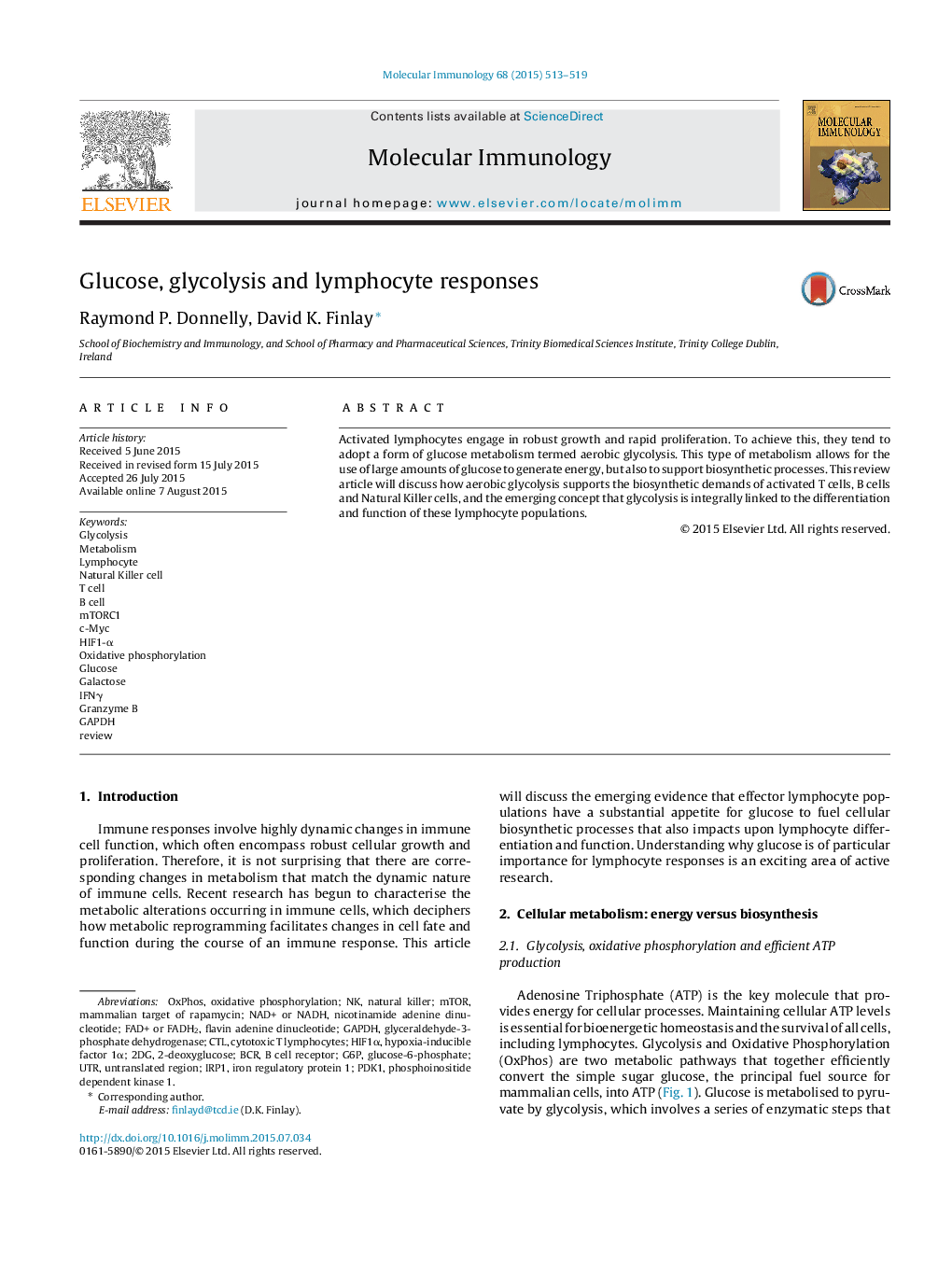| کد مقاله | کد نشریه | سال انتشار | مقاله انگلیسی | نسخه تمام متن |
|---|---|---|---|---|
| 2830667 | 1163749 | 2015 | 7 صفحه PDF | دانلود رایگان |
• Aerobic glycolysis: glucose metabolised to lactate despite the abundance of oxygen.
• Aerobic glycolysis provides glycolytic intermediates as a source of carbon for biosynthetic processes.
• Effector T cells but not regulatory or memory T cells engage aerobic glycolysis.
• Activated Natural Killer cells and B cells use aerobic glycolysis
• Aerobic glycolysis has direct roles in controlling the differentiation and function of lymphocytes that are distinct from supporting cellular biosynthesis.
• Glycolytic enzymes can control lymphocyte function through binding to mRNA and regulating protein synthesis.
Activated lymphocytes engage in robust growth and rapid proliferation. To achieve this, they tend to adopt a form of glucose metabolism termed aerobic glycolysis. This type of metabolism allows for the use of large amounts of glucose to generate energy, but also to support biosynthetic processes. This review article will discuss how aerobic glycolysis supports the biosynthetic demands of activated T cells, B cells and Natural Killer cells, and the emerging concept that glycolysis is integrally linked to the differentiation and function of these lymphocyte populations.
Journal: Molecular Immunology - Volume 68, Issue 2, Part C, December 2015, Pages 513–519
